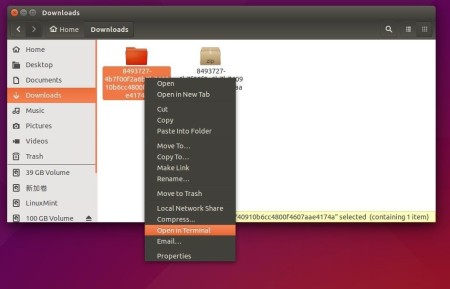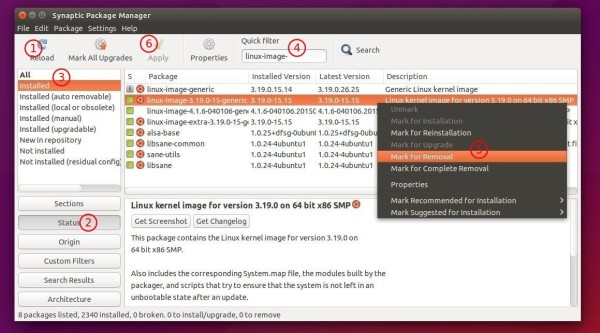Linus Torvalds finally announced the release of Linux Kernel 4.3 at LKML last night. He wrote:
So it *felt* like the last week of the rc series was busy, to the point where I got a bit worried about the release. But doing the actual numbers shows that that really was just my subjective feeling,
probably due to the kernel summit and travel back home from Korea. It wasn’t actually a particularly busy week, it’s just that the pull requests were more noticeable in the last couple of days.We had a network update and a late fix for a x86 vm86 mode bug introduced by the vm86 cleanups, but other than that it’s just a collection of various small oneliners all over. Ok, the vm86 mode thing was a one-liner too, it was just slightly more nerve-wracking because it looked scarier than it was before people (Andy) figured out what was going on.
The changes from rc7 are dominated by the network stuff, but as you can tell from the appended shortlog it’s not anything particularly scary.
So on the whole, this remains a rather calm release cycle until the very end. And with the release of 4.3, obviously the merge window for 4.4 is open, and let’s keep our fingers crossed that that will be an equally calm release. Especially since apparently Greg has decided ahead of time (as an experiment brought on by discussion at the kernel summit) that 4.4 will be another LTS release …
What’s New in Kernel 4.3:
- Intel Skylake Graphics enabled by default.
- Initial support for AMD Radeon R9 Fury
- OpenGL 3.3 support for VMware.
- Rework of the open-source NVIDIA/Nouveau driver
- Remove EXT3 driver since existing EXT3 file-systems can be handled by the EXT4 driver
- Many fixes for XFS, EXT4, F2FS, Btrfs RAID 5/6 and TRIM.
How to Install Kernel 4.3 in Ubuntu:
Ubuntu Kernel Team has made the binary packages for the new Kernel release, available for download at:
Download Linux Kernel 4.3 DEBs
You may first check out your OS type, 32-bit or 64-bit, and then download and install below packages one by one:
- linux-headers-4.3.0-xxx_all.deb
- linux-headers-4.3.0-xxx-generic_xxx_i386/amd64.deb
- linux-image-4.3.0-xxx-generic_xxx_i386/amd64.deb
If you need a low latency system (e.g. for recording audio) then download & install below packages instead:
- linux-headers-4.3.0_xxx_all.deb
- linux-headers-4.3.0-xxx-lowlatency_xxx_i386/amd64.deb
- linux-image-4.3.0-xxx-lowlatency_xxx_i386/amd64.deb
For Ubuntu Server or those who prefer Linux command, run below commands one by one to download and install the kernel binaries:
For 64-bit system:
cd /tmp/ wget http://kernel.ubuntu.com/~kernel-ppa/mainline/v4.3-wily/linux-headers-4.3.0-040300-generic_4.3.0-040300.201511020949_amd64.deb wget http://kernel.ubuntu.com/~kernel-ppa/mainline/v4.3-wily/linux-headers-4.3.0-040300_4.3.0-040300.201511020949_all.deb wget http://kernel.ubuntu.com/~kernel-ppa/mainline/v4.3-wily/linux-image-4.3.0-040300-generic_4.3.0-040300.201511020949_amd64.deb sudo dpkg -i *.deb
for 32-bit system:
cd /tmp/ wget http://kernel.ubuntu.com/~kernel-ppa/mainline/v4.3-wily/linux-headers-4.3.0-040300_4.3.0-040300.201511020949_all.deb wget http://kernel.ubuntu.com/~kernel-ppa/mainline/v4.3-wily/linux-headers-4.3.0-040300-generic_4.3.0-040300.201511020949_i386.deb wget http://kernel.ubuntu.com/~kernel-ppa/mainline/v4.3-wily/linux-image-4.3.0-040300-generic_4.3.0-040300.201511020949_i386.deb sudo dpkg -i *.deb
Once installed, restart to take effect.
Revert back and Uninstall the new Kernel:
Restart your computer and select boot with the old kernel entry under Advanced Options menu when you’re at Grub boot-loader.
When it boots up, run below commands to remove the kernel image:
sudo apt-get autoremove linux-image-4.3.0*
















